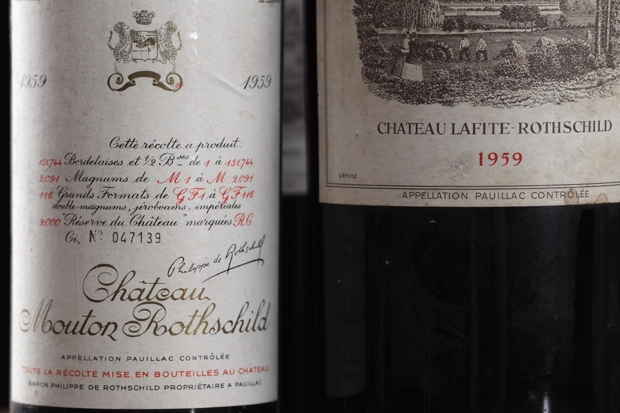Great matters were trembling in the balance. The prime minister needed cash to achieve his objective and as Parliament was not sitting to vote for supply, there would have to be a loan.
The PM summoned his cabinet colleagues to seek their agreement. His private secretary waited outside the cabinet room. Suddenly the door half-opened. Instead of the agreed signal, the prime minister himself said ‘Yes’. The official raced off to New Court, to see the Baron Rothschild.
‘The prime minister wants to borrow £4 million.’ ‘When?’ ‘Tomorrow.’ Rothschild picked up a muscatel grape and, after ejecting the skin, ate it. ‘What is the security?’ ‘The British government.’ ‘You can have it.’
It sounds like an episode from a Disraeli novel, and as the PM was Disraeli, the private secretary his devoted Monty Corry, we can be sure that the drama was not overstated. But it was a successful transaction. The £4 million purchased effective control of the Suez Canal company and, though the Rothschilds did not act pro bono, that turned out to be a very good investment, until the arrival of Nasser.
The Rothschilds are a remarkable house. After two or three generations, most mercantile families lose their edge and become more interested in displaying their fortunes than enhancing them. Not the Rothschilds: they do both. To adapt Sellars and Yeatman, they have proved that it is possible to be right and romantic.
They are also good at dealing in grapes. In the mid-19th century, two branches of the French Roths-childs both bought Bordeaux châteaux: Mouton and Lafite and settled down to an unabating rivalry. This was exacerbated by the 1855 classification, which awarded Lafite first-growth status, Mouton a mere second. In 1973, those in charge of such arrangements proposed that Mouton should be elevated. There was a problem. Lafite objected (Mouton eventually did gain promotion).
This helps to explain a difference between the two wineries. Secure in its status, Lafite has tended to keep itself to itself. Mouton has been more given to display. Since 1945, its labels have been adorned by a major artist, changing from year to year. It has also spread its empire, purchasing two neighbouring châteaux, Clerc-Milon and d’Armailhac. We were to taste them, as part of the Gradus ad Parnassum, or rather, ad Mouton.
First, however, there was a new venture: a Champagne Barons de Rothschild. It was well made: everything one would expect from a crisp, appley brut: a perfect way to whet the expectations. Then another novelty: a dry wine from Coutet, Opalie de Ch. Coutet 2012. This is an extremely promising wine. Drinkable now, it will keep for ten years at least, and is a major addition to the small supplies of serious dry white Bordeaux.
The Clerc-Milon and the d’Armailhac are both fifth growths: both everything that a claret at that level ought to be. The d’Armailhac was especially good, as it should have been: a 1990 en magnum. This was a mature blend of power and harmony, a senatorial wine: one almost heard echoes of a Beethoven symphony — something approaching the first movement of the Eroica.
We then moved on to a much less mature work. The 1998 Mouton was full of truculence and fire. But the tannins and the fruit are still not on speaking terms. This is a wine that needs years yet. If I were lucky enough to own some, I would not try another bottle until the mid-2020s. By comparison, a ’97 Mouton, which I sampled recently, had all the charm and forwardness of a lesser year.
To judge by this scratching at the surface of the Rothschild’s oenophile splendours, the bankers have no reason for anxiety. The wine-makers will continue to add to their prestige.






Comments